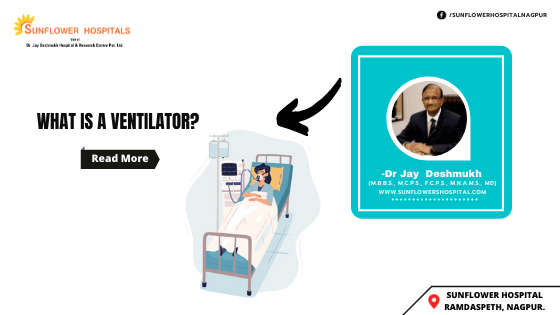Which patient needs a ventilator?
People require a ventilator if they are experiencing respiratory failure. A person is unable to breathe sufficiently enough to get oxygen inside his body and is also unable to expel carbon dioxide. This can lead to life-threatening situations.
What are the different conditions where ventilatory support is required?
There are many conditions that require ventilatory support. Every Critical care unit has these machines. Individuals with massive head injuries, paralytic strokes, severe lung disorders like COVID-19 pneumonia, spinal cord injuries, sudden cardiac arrest, acute respiratory distress syndrome, extensive pneumonia, sepsis are a few instances in which ventilatory support is required. What are the different ways by which a person receives ventilatory support? A face mask ventilator, mechanical ventilator, manual resuscitator bags, and tracheostomy ventilators are a few of them.
What is a mechanical ventilator that is being currently used to rescue our noted Bharat Patna singer?
Mechanical ventilators are machines that take over the breathing process entirely. They are used when patients cannot breathe on their own. The ventilator automatically pumps air into the lungs from a tube in a person’s throat. The unit regulates the pressure, humidity, age due to high pressure or high oxygen levels can occur.
How many cases recover after mechanical ventilatory support?
There are many factors that influence survival. The age of the person, the extent of damage suffered by the vital organs like the lungs, heart, liven brain, and kidneys, and presence of various disorders like underlying hypertension, diabetes, smoking and alcohol habits, obesity, and physical fitness before When a person is on Ventilator it obviously means hat the person is seriously unwell. Putting a person on a ventilator does not, (ways, mean that he will not recover. Most of the individuals with reversible e illnesses do recover, and the recovery depends upon many factors. A ventilator is just a machine that delivers air with oxygen to an individual via a tube directly introduced in the individual’s windpipe. The volume and temperature of the air, depending on the person’s requirements. There are many controls and alarm systems on the machine. Individuals with serious COVID-19 pneumonia may require mechanical ventilation.
Are there any complications from ventilatory support?
There are many complications that can occur. But the benefits of using a mechanical ventilator really outweigh the complications. Infections, lung collapse, the air around the lungs, airway obstruction, vocal cord damage, muscle weakness, and lung dam falling ill can play a pivotal role in the outcome of ventilatory support. In spite of this there are innumerable individuals who have got a new lease of life just because of proper management of their serious illness and ventilatory support could be a part of treatment.
How are patients on ventilators monitored?
Most are monitored in the ICU. The person is hooked up to a monitor that displays the heart rate, blood pressure, oxygen saturation. Other tests like X-ray of chest, arterial blood tests for measurement of oxygen and carbon dioxide levels. The health care team will adjust the parameters or settings on the ventilator after studying these inputs.
How long is a ventilator used?
A ventilator does not cure the problem that has led to the need for ventilatory support. It just supports the person till the main treatment becomes effective. Some may require support for a few hours or days, or a week or two. Others may not improve even on ventilatory sup-port and may die. The duration of ventilatory support depends upon other factors. These include the condition of lungs prior to ventilatory support, the underlying function of heart, brain, kidneys, and severity of infection influence the duration of ventilatory support. Can we deny or refuse ventilatory support? There are many who suffer from terminal diseases or some incurable diseases who wish not to be on ventilator support. It should be made clear to your relatives or friends or caregivers that you should not be on ventilatory support. If this is informed well in advance at the time of hospitalization, the caregivers would respect your sentiments after you give them informed consent of not accepting ventilatory support. A ventilator is not a magic bullet that will bring to life a dying person at all times. There are many variables that influence the outcome of illness and the success of the ventilatory support.

